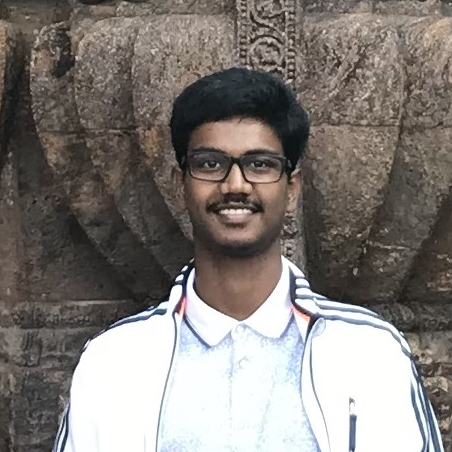Research Group

Christopher Gorski, Principal Investigator
Christopher Gorski has been at Penn State since 2012. Before that, he was a post-doc at Eawag in Switzerland (2010 - 2012) and a PhD student at the University of Iowa (2005 -2009).

Vineeth Pothanamkandathil, PhD Candidate in Environmental Engineering
Vineeth joined the group in the Fall of 2018. He is working on intercalation materials used for desalination and selective ion separations.

Timothy Hudak Jr., PhD Student in Chemical Engineering
Tim is PhD student in Chemical Engineering, and he began his PhD in Fall 2022. He is currently studying electrochemical desalination technologies.

Mahmudul Hasan, PhD Student in Chemical Engineering
Mahmudul is PhD student in Chemical Engineering. He is currently studying the fabrication and use of patterned ion exchange membranes for improving the energy efficiency of electrochemical desalination technologies.

Anthony Poompa, PhD Student in Chemistry
Anthony is a PhD student in Chemistry, and he is co-advised with Matthew Fantle in Geosciences. Anthony began his PhD in Fall 2022. He is currently studying the carbonation of igneous rocks for in-situ carbon sequestration.

Paolo Benavides , Post-doc in Environmental Engineering
Paolo Benavides will be joined the group as a post-doc in January 2024 to study the redox properties of Mn oxides! He is co-advised by Peter Heaney in the Department of Geosciences.

Christopher Gorski, Principal Investigator
Christopher Gorski has been at Penn State since 2012. Before that, he was a post-doc at Eawag in Switzerland (2010 - 2012) and a PhD student at the University of Iowa (2005 -2009).

Vineeth Pothanamkandathil, PhD Candidate in Environmental Engineering
Vineeth joined the group in the Fall of 2018. He is working on intercalation materials used for desalination and selective ion separations.

Timothy Hudak Jr., PhD Student in Chemical Engineering
Tim is PhD student in Chemical Engineering, and he began his PhD in Fall 2022. He is currently studying electrochemical desalination technologies.

Mahmudul Hasan, PhD Student in Chemical Engineering
Mahmudul is PhD student in Chemical Engineering. He is currently studying the fabrication and use of patterned ion exchange membranes for improving the energy efficiency of electrochemical desalination technologies.

Anthony Poompa, PhD Student in Chemistry
Anthony is a PhD student in Chemistry, and he is co-advised with Matthew Fantle in Geosciences. Anthony began his PhD in Fall 2022. He is currently studying the carbonation of igneous rocks for in-situ carbon sequestration.

Paolo Benavides , Post-doc in Environmental Engineering
Paolo Benavides will be joined the group as a post-doc in January 2024 to study the redox properties of Mn oxides! He is co-advised by Peter Heaney in the Department of Geosciences.